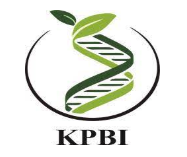Identifikasi Miskonsepsi Peserta Didik Pada Konsep Ekosistem Menggunakan Certainty Of Response Index (CRI)
DOI:
https://doi.org/10.15575/bioeduin.v12i2.20118Keywords:
Misconceptions, Remediation, Certainty of Response Index (CRI), EcosystemAbstract
Miskonsepsi yang terjadi pada peserta didik merupakan hal yang perlu diperbaiki saat proses pembelajaran. Guru sebagai bentuk fasilitator dapat mencari berbagai solusi atas miskonsepsi peserta didik. Penelitian ini bertujuan untuk mengetahui keadaan miskonsepsi awal dan miskonsepsi setelah remediasi dengan menggunakan Certainty of Response Index (CRI) pada materi ekosistem di kelas X MIPA di SMA Negeri 3 Tasikmalaya. Data penelitian ini dikumpulkan menggunakan metode observasi, tes, dan wawancara. Instrumen yang digunakan yaitu instrumen soal pilihan ganda dengan bentuk soal Certainty of Response Index (CRI), Rencana Pelaksanaan Pembelajaran (RPP), dan wawancara semi terstruktur. Hasil penelitian menunjukkan bahwa rata-rata persentase peserta didik kategori paham konsep mengalami peningkatan, kategori lucky guess mengalami penurunan. kategori miskonsepsi mengalami penurunan, dan kategori tidak tahu konsep mengalami penurunan. Persentase siswa yang mengalami miskonsepsi awal pada konsep Ekosistem sebesar 24% dan mengalami penurunan 1% setelah pengaplikasian model pembelajaran 5L atau Learning Cycle dan hasil ini lebih kecil dari pada presentase kategori tidak tahu konsep. Miskonsepsi dapat diminimalisasikan dengan penerapan metode pembelajaran Learning Cycle 5E dan terbukti dari penurunan tingkat miskonsepsi peserta didik.
Misconceptions that occur in learners are things that need to be improved during the learning process. Teachers as a form of facilitator can find various solutions to the misconceptions of learners. This study aims to find out the state of initial misconceptions and misconceptions after remediation by using the Certainty of Response Index (CRI) on ecosystem materials in class X MIPA at SMA Negeri 3 Tasikmalaya. The study data was collected using observation methods, tests, and interviews. The instruments used in this study was multiple choice instruments with Certainty of Response Index (CRI) questions, Learning Implementation Plan (RPP), and semi-structured interviews. The results showed that average percentage of students in the concept-understanding category was increased, the lucky guess category was decreased, the misconception category decreased, and the category did not know the concept was decreased. The conclusion of this study is the percentage of students who experience initial misconceptions on the ecosystem concept was 24% and decrease was 1% after the application of Learning Cycle Model and it was smaller than the percentage of not knowing the concept category. Misconceptions can be minimalized by applying the learning cycle method and its evident from the descrease in the level of students’ misconceptions.
References
Gusmalia, R. (2016). Penggunaan Asesmen Peta Konsep Untuk Menganalisis Miskonsepsi Siswa Pada Materi Ekosistem Kelas X SMA Al-Azhar 3 Bandar Lampung. Jurnal Pendidikan Biologi.
Hasan, S., Bagayoko, D., & Kelley, E.L. (1999). Misssconceptions and the certainty of Response Index (CRI). Phys.Educ: 34(5)
Nurhidayah, L., Riandi, & Solihat, R. (2020). Identifikasi Miskonsepsi Siswa SMA Pada Topik Ekosistem. Assimilation: Indonesian Journal of Biology Education, 3(1), 12-17
Odum, E. P. (1998). Dasar-dasar Ekologi: Terjemahan dari Fundamentals of Ecology. Yogyakarta: Universitas Gadjah Mada Press.
Rahayuningsih, R., Masykuri, M., & Utami, B. (2012). Penerapan Siklus Belajar 5e (Learning Cycle 5e) Disertai Peta Konsep Untuk Meningkatkan Kualitas Proses Dan Hasil Belajar Kimia Pada Materi Kelarutan Dan Hasil Kali Kelarutan Kelas XI IPA SMA Negeri 1 Kartasura Tahun Pelajaran 2011/2012: Jurnal Pendidikan Kimia, 1(1), 51-58.
Shi,J., William B.W., Jennifer M.M.,Nancy A.G., Quentin V., & Jennifer K.K. (2010) . A Diagnostic Assessment for Introductory Molecular and Cell Biology CBE—Life Sciences Education: Volume 9, Hal.453– 461
Sugiyono. (2015). Metode Penelitian Kuantitatif Kualitatif dan R&D. Bandung: Alfabeta.
Suparno, P. (2013). Miskonsepsi & Perubahan Konsep dalam Pendidikan Fisika. Yogyakarta: Grasindo.
Syafira, R. (2017). Korelasi antara Minat Belajar dengan Tingkat Miskonsepsi Siswa SMA Negeri 2 Banda Aceh pada Konsep Gerak Lurus. Skripsi. Program Studi Pendidikan Fisika FKIP Universitas Syiah Kuala.
Syahrianto. T. E., & Hamdani. (2014). Penerapan Metode Eksperimen Berbasis Pendekatan Saintifik untuk Meremediasi Miskonsepsi pada Materi Getaran di SMP. Jurnal Pendidikan dan Pembelajaran, 4(6), 1-11.
Treagust, D.F. (2006). Diagnostic Assesment In Science as A Means to Improving Teaching, Learning, and Retention. UniServe Science Assesment Symposium Proceedings. The University of Sydney, 28 September
Trianto. (2010). Model Pembelajaran Terpadu. Jakarta: Bumi Aksara.
Yuliati, Y. (2017). Miskonsepsi Siswa Pembelajaran IPA Serta Remediasinya. Jurnal Bioeducatio, 2(2), 50-58.
Downloads
Published
How to Cite
Issue
Section
Citation Check
License
Authors who publish in Jurnal BIOEDUIN agree to the following terms:
- Authors retain copyright and grant the journal right of first publication with the work simultaneously licensed under a Attribution-ShareAlike 4.0 International (CC BY-SA 4.0) License that allows others to share the work with an acknowledgment of the work's authorship and initial publication in this journal.
- Authors are able to enter into separate, additional contractual arrangements for the non-exclusive distribution of the journal's published version of the work (e.g., post it to an institutional repository or publish it in a book), with an acknowledgment of its initial publication in this journal.
- Authors are permitted and encouraged to post their work online (e.g., in institutional repositories or on their website) prior to and during the submission process, as it can lead to productive exchanges, as well as earlier and greater citation of published work (See The Effect of Open Access).








